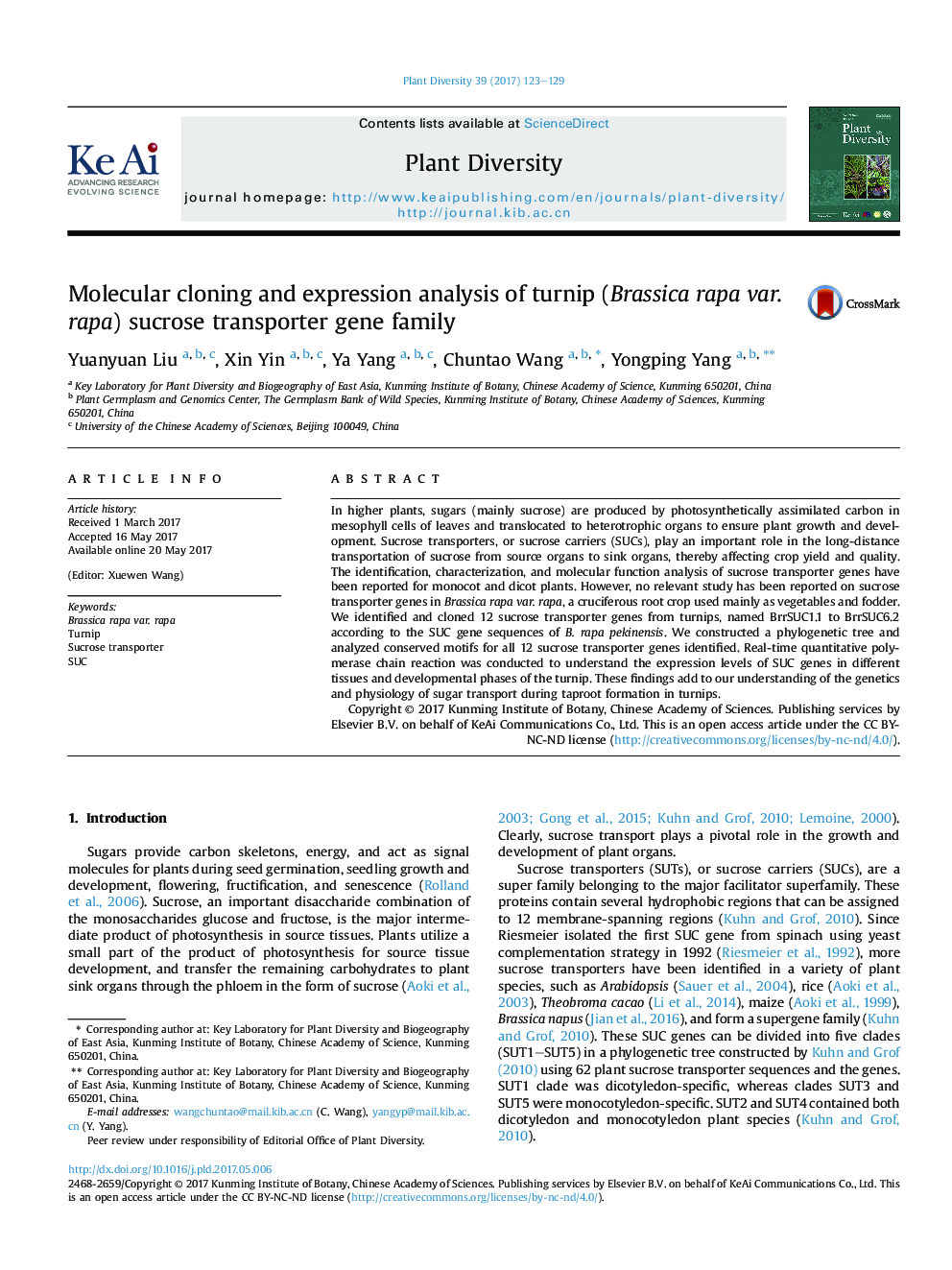| Article ID | Journal | Published Year | Pages | File Type |
|---|---|---|---|---|
| 5767072 | Plant Diversity | 2017 | 7 Pages |
In higher plants, sugars (mainly sucrose) are produced by photosynthetically assimilated carbon in mesophyll cells of leaves and translocated to heterotrophic organs to ensure plant growth and development. Sucrose transporters, or sucrose carriers (SUCs), play an important role in the long-distance transportation of sucrose from source organs to sink organs, thereby affecting crop yield and quality. The identification, characterization, and molecular function analysis of sucrose transporter genes have been reported for monocot and dicot plants. However, no relevant study has been reported on sucrose transporter genes in Brassica rapa var. rapa, a cruciferous root crop used mainly as vegetables and fodder. We identified and cloned 12 sucrose transporter genes from turnips, named BrrSUC1.1 to BrrSUC6.2 according to the SUC gene sequences of B. rapa pekinensis. We constructed a phylogenetic tree and analyzed conserved motifs for all 12 sucrose transporter genes identified. Real-time quantitative polymerase chain reaction was conducted to understand the expression levels of SUC genes in different tissues and developmental phases of the turnip. These findings add to our understanding of the genetics and physiology of sugar transport during taproot formation in turnips.
